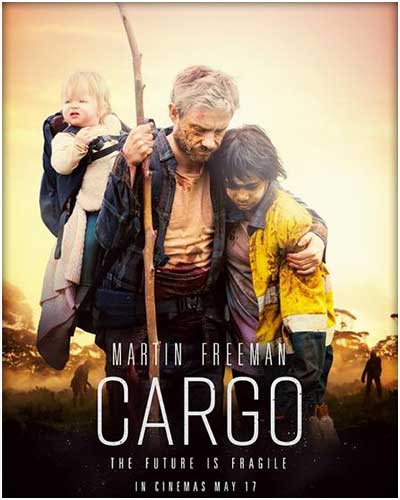What’s to watch on Netflix?
- 13 Apr - 19 Apr, 2024
On the surface, Cargo may seem like your average, intense, indie-zombie film (a very rare breed in the zombie genre by itself). However, just ponder over a few scenes, and a whole different, even radical meaning presents itself.

Andy and Kay (Martin Freeman and Susie Porter) are a husband and wife couple on a houseboat in the middle of a river in Australia. With them is their daughter, Rosie, a sweet one-year-old, who has yet to say Dada to her father.
Things are far from rosy. The couple are running low on supplies, and are afraid to get off the river. The world has been in a state of pandemic, where anyone bitten by the infected turns into a zombie within 48 hours; the only known medical cure is – literally – a shot in the head.
Andy and Kay have to take a dangerous terrain through a near devastated Australian outback, as they search for a way to get their daughter to some safe heaven. From the first moment you know theirs is a lost cause.
Things become harder when Andy saves a man called Vic (Anthony Hayes), a racist who traps Australian indigenous natives into steel cages so that he can lure the living dead out into the open. Vic has a woman (Caren Pistorius) in his house, but you know she’s not his wife; like most everything in Vic’s life, she is a possession to be exploited.
Andy also crosses paths with Thoomi (Simone Landers), a young native girl whose father is a zombie.
Martin Freeman’s powerful performance helps alleviate most of the harshness of the message, while giving the film a protagonist we would hate to see die. However, I had already seen his character before.
Cargo was originally a harrowing short film of the same name by directors Ben Howling and Yolanda Ramke. Barely eight minutes in length, the short film (available to watch on Vimeo and YouTube) packed a unique punch – especially by its climax.
That powerful climax is sustained in this feature length version, however, the highlight has changed somewhat. The film, in its long-form, mixes intelligence with social and racial issues and loses some of its impact; though in all fairness, that same trait does separate it from its genre-brethren.
COMMENTS